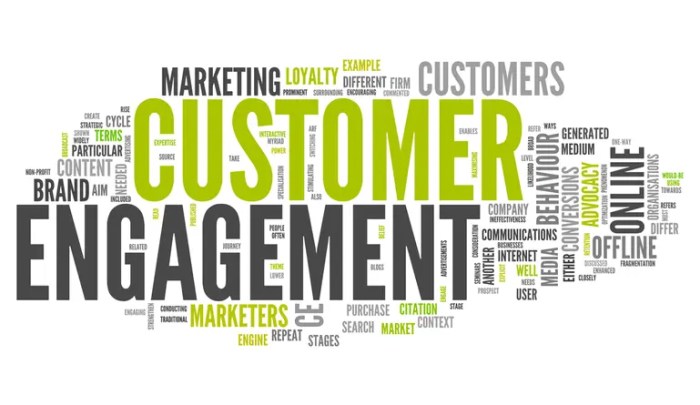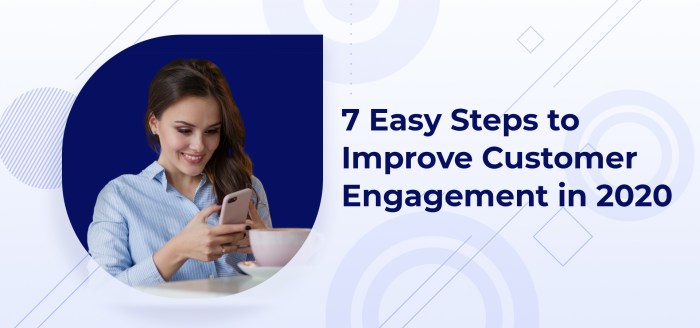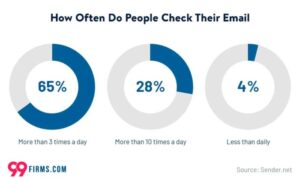Increasing Customer Engagement sets the stage for businesses to thrive. Dive into successful strategies, social media tactics, personalization impact, and customer experience enhancement that drive brand loyalty and growth.
Strategies for Increasing Customer Engagement

Customer engagement is crucial for the success of any business as it involves building a strong connection with customers, fostering loyalty, and driving repeat business. Here are some successful strategies that can help increase customer engagement:
Utilize Social Media Platforms
Social media platforms such as Instagram, Facebook, and Twitter provide businesses with a direct line of communication to their customers. By engaging with customers through posts, comments, and messages, businesses can create a sense of community and build relationships with their audience.
Personalize the Customer Experience
Personalization is key to engaging customers and making them feel valued. By collecting data on customer preferences and behavior, businesses can tailor their marketing messages, product recommendations, and promotions to better meet the needs of individual customers.
Implement Loyalty Programs
Loyalty programs are a great way to reward customers for their repeat business and encourage them to engage with your brand on a regular basis. By offering rewards, discounts, and exclusive perks to loyal customers, businesses can increase customer retention and drive sales.
Provide Excellent Customer Service
Excellent customer service is essential for building trust and loyalty with customers. By providing fast, friendly, and helpful support, businesses can create positive experiences that keep customers coming back for more.
Host Interactive Events and Contests
Hosting interactive events, contests, and giveaways is a fun way to engage customers and create buzz around your brand. By encouraging participation and offering prizes, businesses can attract new customers, increase brand awareness, and foster a sense of community.In conclusion, customer engagement plays a vital role in business growth by fostering brand loyalty, driving repeat business, and creating long-lasting relationships with customers.
By implementing these successful strategies, businesses can increase customer engagement and ultimately boost their bottom line.
Utilizing Social Media for Customer Engagement
In today’s digital age, social media has become a powerful tool for businesses to connect with their customers on a more personal level. By leveraging social media platforms effectively, businesses can increase customer engagement and build brand loyalty.
Creating Interactive Content, Increasing Customer Engagement
Creating interactive content is key to boosting customer engagement on social media platforms. Here are some tips to make your content more interactive:
- Host polls and surveys to gather feedback from your audience.
- Run contests or giveaways to incentivize engagement.
- Share user-generated content to showcase your customers and build a sense of community.
- Use live videos to connect with your audience in real-time.
Role of Social Media Analytics
Social media analytics play a crucial role in measuring customer engagement. By analyzing metrics such as likes, shares, comments, and click-through rates, businesses can gain valuable insights into their audience’s preferences and behavior. This data can help businesses tailor their content strategy to better engage with their customers and drive business growth.
Personalization and Customer Engagement
Personalization plays a crucial role in customer engagement as it allows businesses to tailor their marketing efforts to individual preferences and behaviors, creating a more meaningful and relevant experience for customers.
Impact of Personalized Marketing on Customer Engagement
Personalized marketing can significantly impact customer engagement by making customers feel valued and understood. By using data to personalize interactions, businesses can increase customer loyalty, drive repeat purchases, and foster long-term relationships with their customers.
- Customized product recommendations based on past purchases or browsing history
- Promotional offers tailored to specific customer segments
- Personalized email marketing campaigns addressing customers by name
Examples of Personalized Customer Experiences
- Amazon’s recommendation engine suggesting products based on browsing and purchase history.
- Starbucks’ mobile app offering personalized drink recommendations and rewards based on past orders.
- Spotify creating personalized playlists based on listening habits and preferences.
Use of Data Analytics in Tailoring Personalized Customer Interactions
Data analytics plays a crucial role in tailoring personalized customer interactions by analyzing customer data to understand preferences, behaviors, and patterns. By leveraging data insights, businesses can create targeted marketing campaigns, personalized recommendations, and tailored communications that resonate with customers on a deeper level.
Data analytics allows businesses to segment customers effectively and deliver personalized experiences at scale.
Enhancing Customer Experience for Better Engagement

In today’s competitive business landscape, providing a seamless customer experience is crucial for enhancing customer engagement. A positive customer experience can lead to increased loyalty, repeat business, and positive word-of-mouth referrals.
Improving Customer Journey Mapping
Customer journey mapping is a powerful tool that helps businesses understand the various touchpoints a customer interacts with throughout their experience. By improving customer journey mapping, businesses can identify pain points, optimize interactions, and create a more personalized experience for each customer.
- Utilize data analytics to track customer interactions at each touchpoint.
- Identify key moments of engagement and areas for improvement.
- Implement personalized messaging and offers based on customer behavior.
- Continuously update and refine the customer journey map based on feedback and insights.
Role of Customer Feedback
Customer feedback plays a crucial role in enhancing overall customer experience. By actively listening to customer feedback, businesses can gain valuable insights into customer preferences, pain points, and expectations. This information can be used to tailor products, services, and interactions to better meet customer needs.
Feedback is a gift. Use it to improve your customer experience.
- Encourage customers to provide feedback through surveys, reviews, and social media channels.
- Analyze feedback data to identify trends and areas for improvement.
- Implement changes based on customer feedback to enhance the overall customer experience.
- Show appreciation for customer feedback by acknowledging and responding to comments and suggestions.





